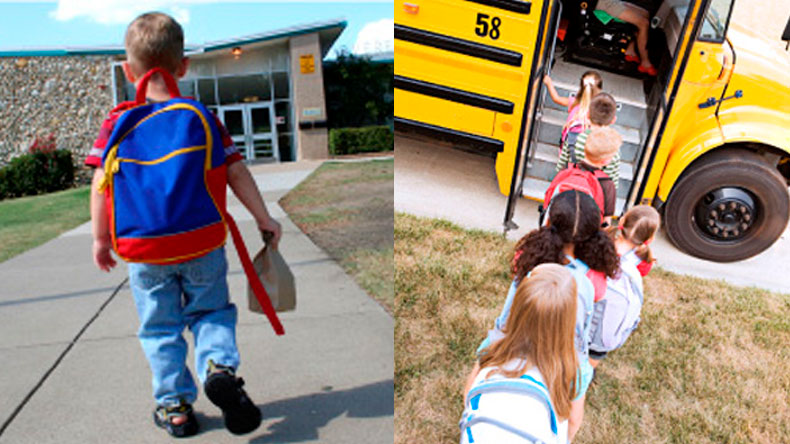Top Ten Tips for the Transition to Kindergarten
- Help yourself first. We can be more helpful to our children if we acknowledge the ways in which this transition is a big life step for us, as well. Think about what will help us through this developmental event: information, support, networking, etc.
- Say goodbyes before concentrating on hellos. Whether your child has been in preschool, child care, or at home with you, help him/her say goodbye to that familiar situation. Review her recent past experiences by looking at photos or helping her make memory books. Talk about what he most enjoyed, what he will miss, and how much he has grown. Point out ways you can help her stay in touch with important people.
- Try to identify your child's big concerns about starting kindergarten. Is he worrying about not making new friends? Is she wondering about where the bathrooms will be? Investigate these concerns through your special knowledge of your child. Pay attention to what he/she is saying. Ask open-ended questions: "Sometimes children wonder what the teacher will be like. What do you wonder about?" Ease fears by talking about specifics such as drop-off and pick-up routines.
- Think about how much advance preparation your child usually needs for big life changes. Some children need a lot more preparation than others. And children address big issues in little bits and pieces spread out over time-a few sentences here, a few questions there-and not in one big conversation.
- Concentrate on building "bridges" between the old, familiar experience and the new, unfamiliar experience. For example, as kindergarten gets closer, you may be able to get a class list. If so, contact a few families about setting up one-on-one playdates before school starts. Visit the school if you can; if not, walk around the outside, peak inside the windows, and play on the playground. Let your child take photos.
- Use your child's imagination. Play school. Read books about kindergarten. Make up your own stories or create a puppet show about going to school.
- Acknowledge and support feelings, especially mixed feelings. Tell your own stories about your kindergarten and early school experiences. Stay positive, but don't be afraid to share anecdotes about minor missteps that ended well. You may also acknowledge your own mixed feelings about the transition: "You've grown up so fast, it's hard for me to believe that you're not a little baby anymore. You're ready for big-kid school!"
- Encourage self-care skills. Being able to wash hands, use the bathroom successfully, dress, zip up a jacket, and so on not only increases your child's self-esteem; feeling secure about these skills will give him/her one less thing to worry about in kindergarten.
- Expect stress. Limit other transitions when possible. Plan and put into effect a kindergarten routine for your child: Select and lay out school clothes each night, get the backpack ready for the morning, choose a reasonable bedtime, and so on.
- Maintain a sympathetic yet positive attitude: "I know this life change has some big challenges in it, and I also know that you can learn to do it and have a great time. I have faith in you, and I'm here to help you-and so is your teacher!"
Debbie Weinstock-Savoy, Ph.D., is a licensed psychologist and mother of three children. She has over twenty years of experience consulting with parents and educators.

